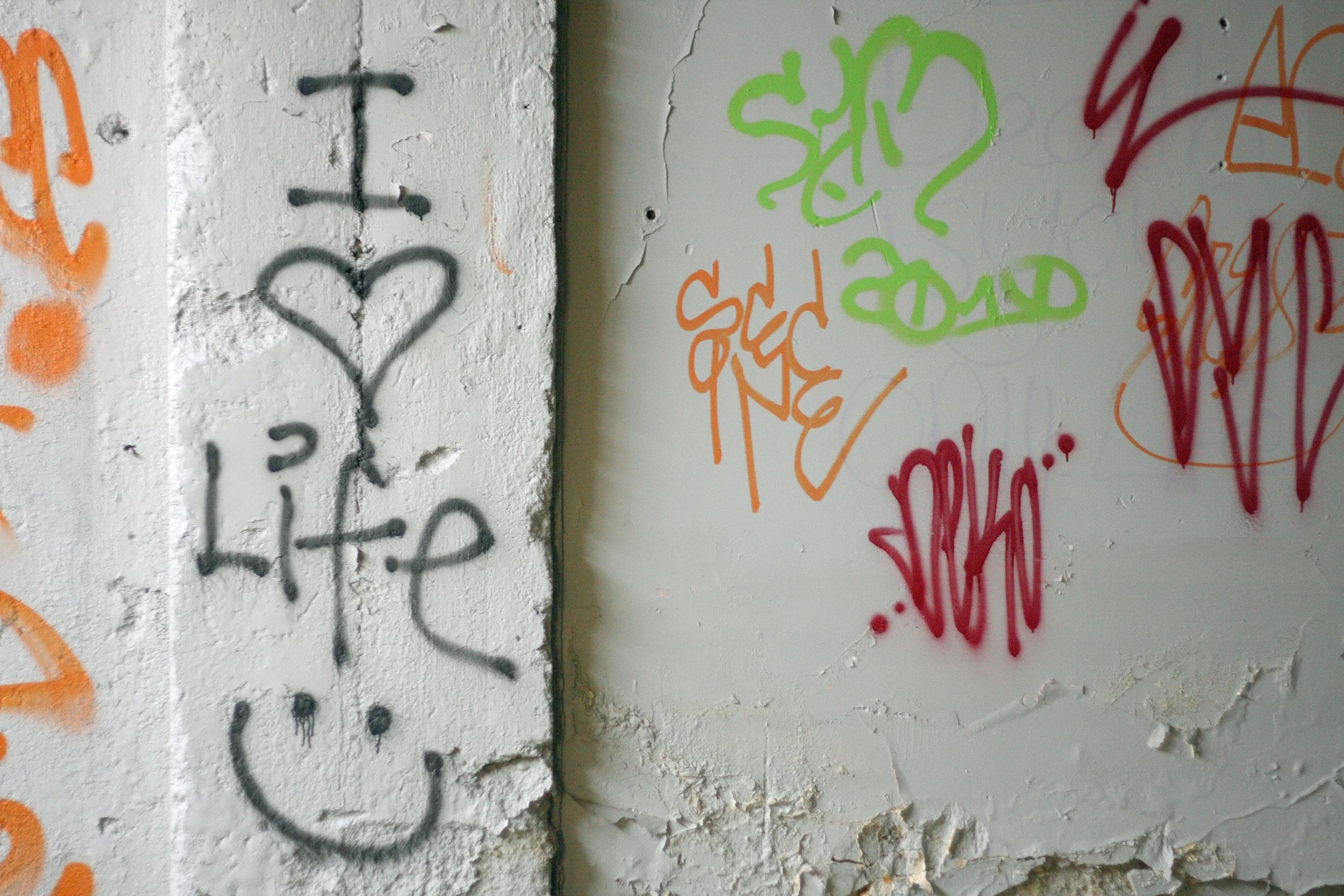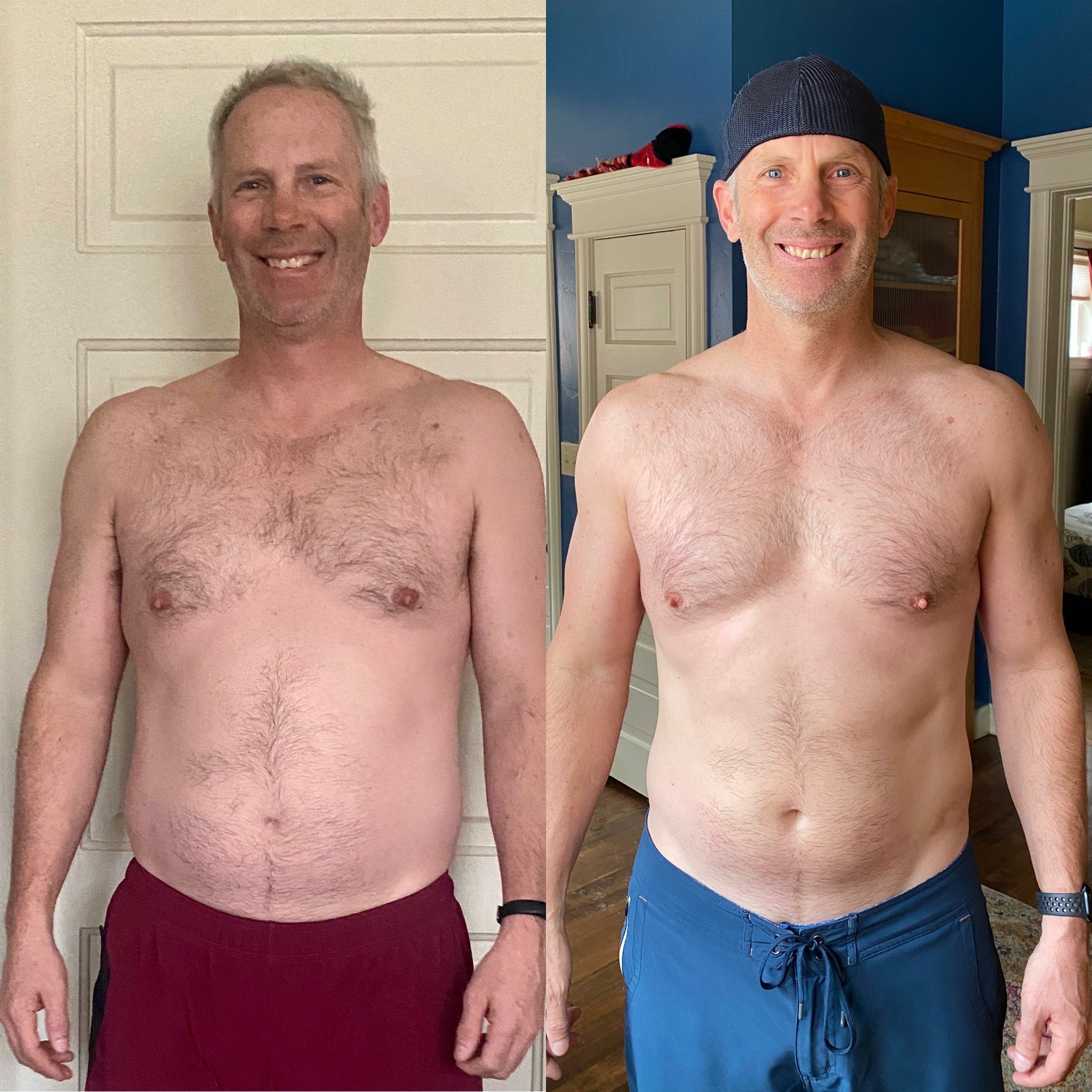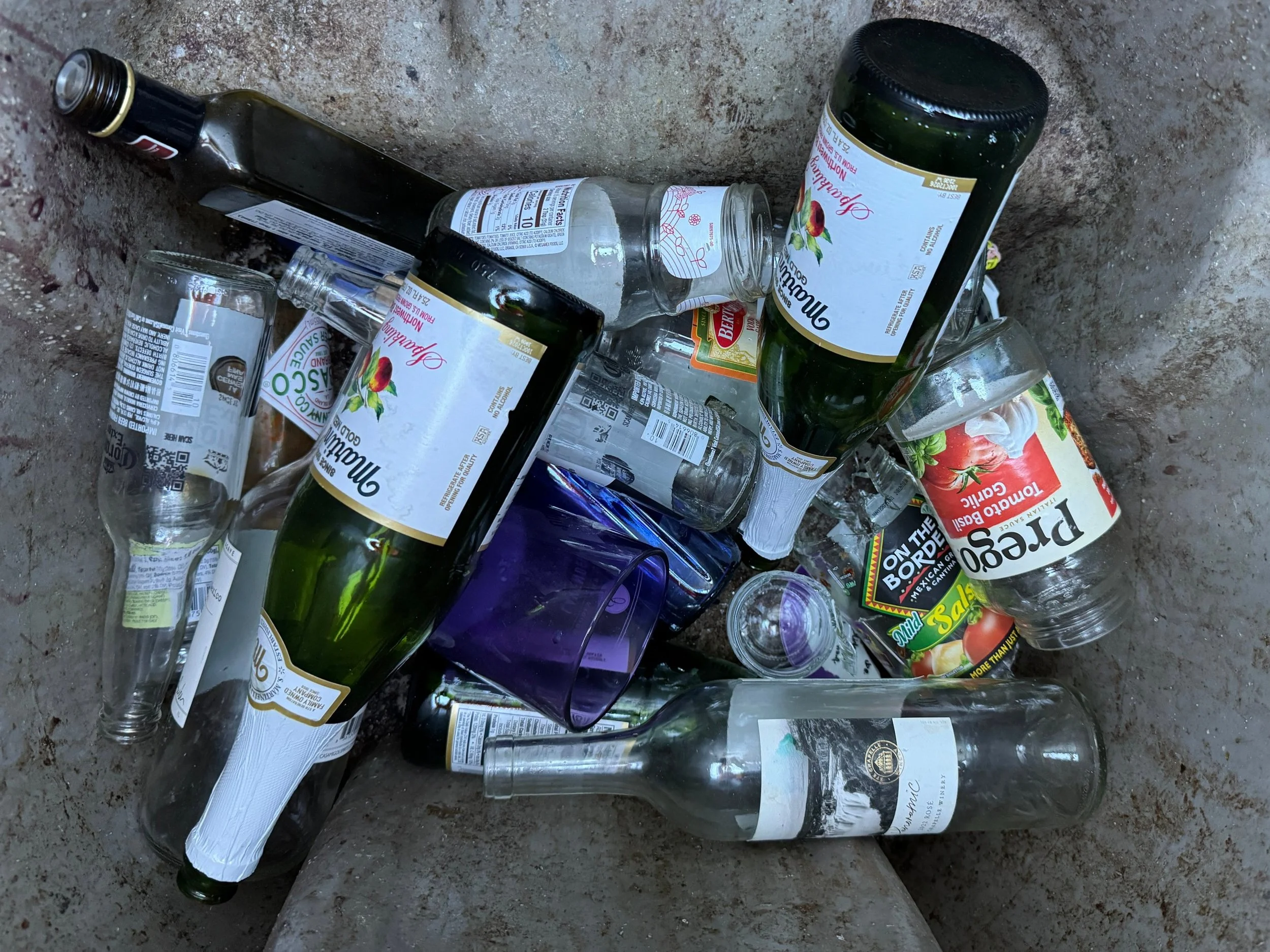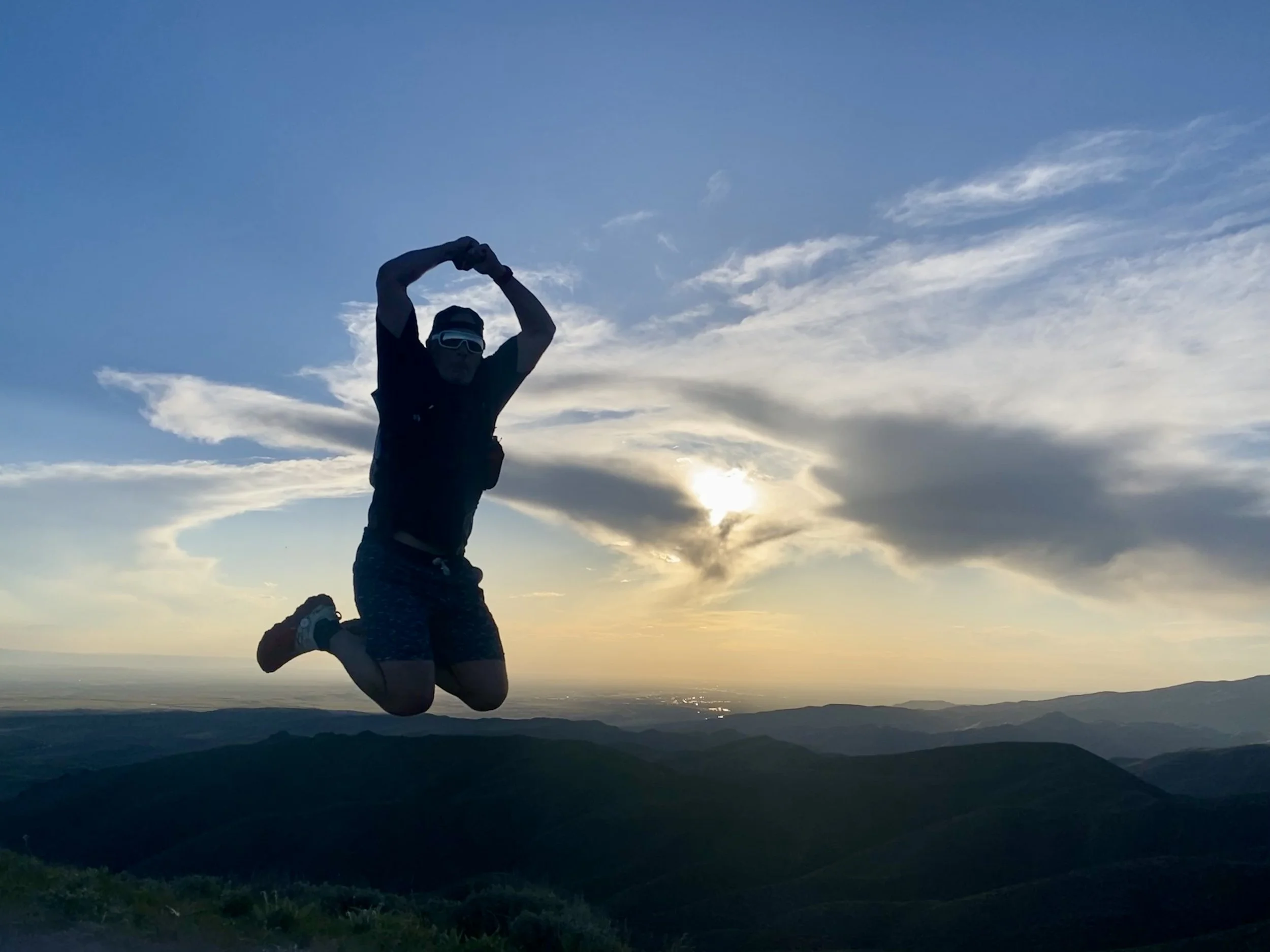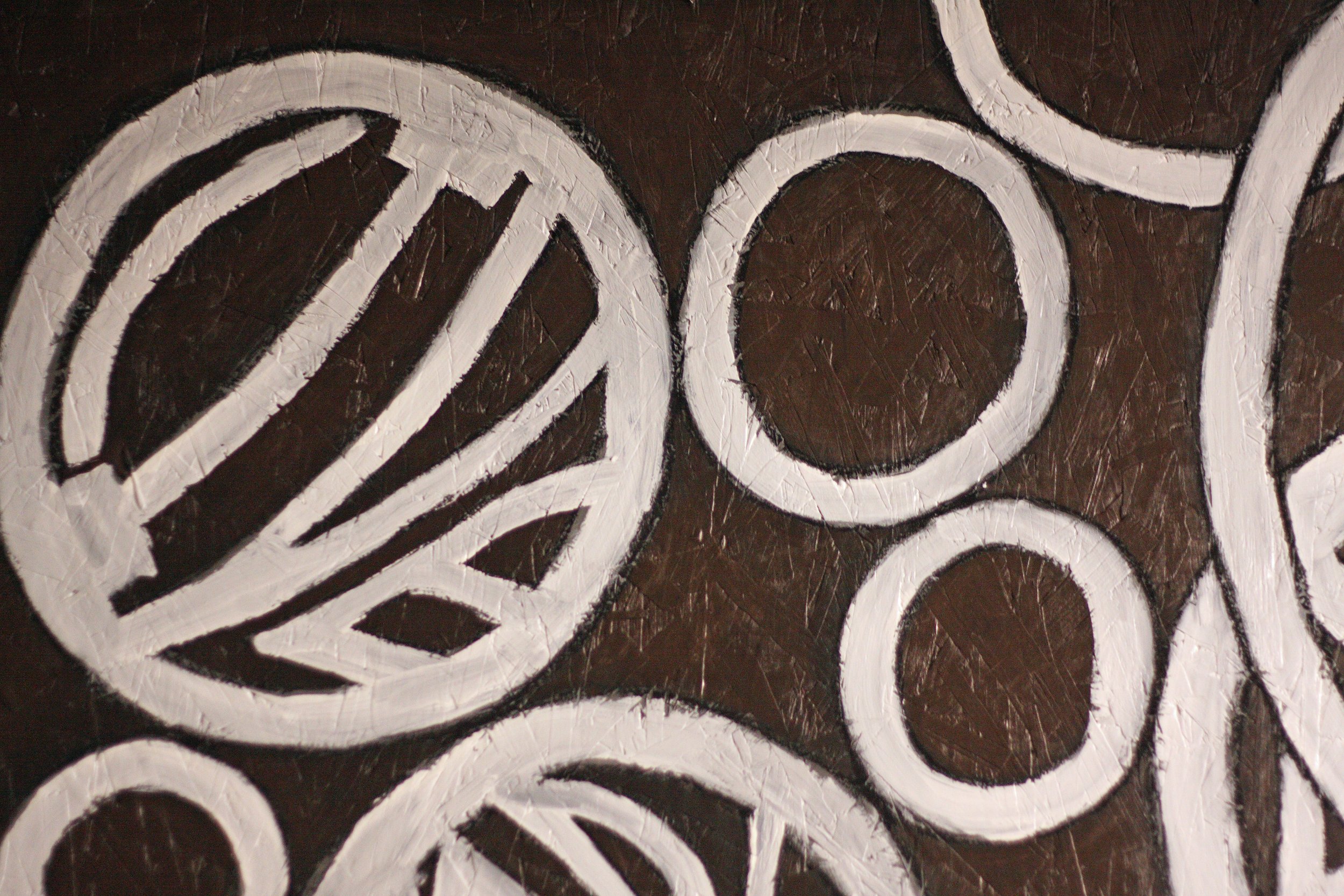Breaking free: the transformative power of quitting alcohol in my personal journey
Quitting alcohol has many predictable and not-so-predictable benefits. One that surprised me was that I appreciated small moments more.
I didn’t quit drinking alcohol overnight. My decision to quit came after years of trial and error, embarrassing social gaffs, hungover mornings at work, and quiet reflection.
It also took a big goal setting exercise to make it happen. In the winter of 2023, I set 50 pretty tough goals to celebrate turning 50, and quitting drinking for a year was among them.
It’s now 16 months later, and I learned a lot about myself in the last 480-odd days. The gist is that when I’m not drinking I’m more positive day to day, more productive at home and at work, more engaged in my friendships and marriage, and I’m significantly more active and healthier.
While quitting for a year was my initial goal, I learned pretty quickly when I started drinking again that I’m better off without alcohol.
This is my story.
Deciding to quit alcohol
My decision to quit alcohol wasn’t the result of a single catastrophic event like getting a DUI or fight with my wife. Rather, I think it resulted from three key factors:
1. Embarrassing drinking stories: Over three decades of evolving drinking habits, I accumulated hundreds of small—sometimes bigger—embarrassing drinking stories.
2. Dieting: In my 40s I started experiencing windows of clarity when I did month-long elimination diets to reset my eating (and drinking) habits. These were the first four- to six-week periods of total sobriety I’d experienced since my early 20s.
3. Keeping track of drinking days: About three years ago I started using a habit tracking app to help me maintain good habits and break bad ones. I included “no alcohol” as one of my six key habits. I kept track for years (and still keep track) and was initially surprised to discover that I drank alcohol far more regularly than I thought.
Embarrassing drinking stories
In my 40s, after three decades of evolving drinking habits, I started to think critically about my relationship with alcohol.
For most of my life I didn’t question my drinking, but as 50 approached, I had an increasing number of embarrassing stories to tell. There were evenings I didn’t remember, mean things I did to nice people, unnecessary accidents and medical bills, a few near misses while driving intoxicated, and needless arguments with my wife.
Even with dozens of stories as evidence, I found ways to excuse the mounting evidence that my relationship with alcohol was getting more complicated. I reasoned that the embarrassing stories only happened once every month or two, and for the most part I drank regularly but responsibly.
After decades of regular drinking with dozens of friends who also drank regularly, I’d rank my alcohol consumption as similar to a large percentage of people who seem to keep things together. I’ve held down jobs, written books, kept a marriage together, been there for my family when they needed me, and stayed pretty fit most of the time.
But I drank often, frequently drank fast, and sometimes drank myself under the table. And the older I got the more this pattern bugged me.
Dieting as an opportunity for clarity
The toll drinking takes on your body is pretty clear if you pause to think about it, or see it.
When I first quit drinking for a period of weeks, the point wasn’t to quit drinking at all. Rather, I’d started an elimination diet program to help figure out if I had any food sensitivities. The immediate benefits of the diet were clear. I lost weight and felt great and didn’t have too much trouble adjusting.
After six weeks of restrictive eating and drinking, I gradually added foods and drinks back into my diet and quickly discovered that alcohol in general makes me feel more bloated and foggy, and beer in particular has that undesirable effect.
It’s now more than a decade later, and I’ve done elimination diets almost every year since the first. Every one of those was a reminder that sobriety feels good for my mind and body.
Thinking back, this might be the single biggest factor leading to my decision to quit longer term. The diets gave me the clarity to know that I wanted sobriety, and the confidence to know I could do it.
Keeping track of drinking days
I knew I drank alcohol regularly and sometimes drank to excess, but I didn’t understand the extent until I started keeping track.
Using a habit tracking app called Streaks, I marked my task complete on days I didn’t drink. Over time, this left me a calendar that plainly showed how regularly or irregularly I drank.
January 2022 was pretty typical. I drank 16 out of 31 days, and there was a three-week period when I drank 14 out of 18 days. Once I saw this in the app’s calendar view I knew it was a pattern I wanted to change.
Streaks is a paid app for iPhone users that I highly recommend for helping adjust habits and goals, but a printed calendar could be used to the same effect by marking days you drink or don’t drink in different colors.
For me, this was one of the final epiphanies that led me to prioritize quitting alcohol longer term. Even once I’d decided to do it, however, it took nine more months to identify a quit date, and establish and execute a plan.
What is addiction?
Throughout my life I’ve been open to the idea that there could be a day when I’d develop an addiction to alcohol and need to quit. Having previously been addicted to chewing tobacco, I also knew there wasn’t a clear-cut time or moment when I would know I was addicted.
Like other behavioral health conditions, addiction exists on a spectrum that ranges from functional to dysfunctional, and it’s challenging to identify where you are on that spectrum. We also live in a culture that normalizes and celebrates alcohol, and that easily skews our perceptions of what constitutes “normal” for our own drinking.
What this means is that I’ve always hesitated to call myself an alcohol addict—and I still do. To help think more constructively about the issue, I stopped using the words addiction, alcoholic, or alcoholism to try to explain the way I felt about my drinking, and instead accepted that my relationship with alcohol was getting more complicated.
Using this phrase, I was willing and happy to talk with friends and family—and myself—about alcohol. This reframing of my drinking with words I didn’t resist was another key to my being open to quit.
Helpful tools and strategies I used to quit alcohol
Quitting drinking can help reframe your perspective.
Adjusting habits—good or bad—takes work. Literally, it’s the process of rewiring your brain’s circuitry to adjust the cue, craving, response, and reward cycle. With at least some level of chemical dependence involved, alcohol adds complexity to this process.
I used several tactics to do this.
Setting a goal: My first step was to identify my goal of quitting for a year. This wasn’t as straightforward as you might guess. I wavered in the beginning, wondering if I should allow myself cheat days to drink when social circumstances called for it, but ultimately decided not drinking at all would be more meaningful to me personally and create a better learning opportunity.
Streaks habit tracking app: As discussed above, the Streaks habit tracking app was one of the keys to identify that my drinking frequency was more than I’d like. I also used it to track every single day I didn’t drink for the entire year. Other similar apps include: HabitNow, Habitify, Way of Life, and Habitica.
Written contract: Another important strategy that led to my success was use of a formal contract. I wrote and signed a contract with myself that explained my reasons for wanting to quit using very clear whereas statements. The contract specifically identified my goal of quitting for one year. If for any reason I failed, I had to write a new contract that explained the failure and how I’d adjust my tactics to complete the goal.
While the contract was a formal agreement with myself it served another important purpose. The act of writing it using formal language forced me to spell out the reasons I wanted to quit and tools I was going to use to do it.
This elevated the goal from a whimsical fancy to a clear objective with supporting reasons and tactics I’d use.
Reframe alcohol quitting app: The Reframe app is specifically designed to help people reduce or quit drinking alcohol. It’s a paid monthly subscription, but it’s also an incredibly full-featured resource that includes daily check-ins, testimonials, lessons about the science and psychology that underlie alcohol use, support groups, and much, much more.
One of Reframe’s features is similar to the habit tracking apps described above, but when you complete a day without alcohol Reframe informs you about physiological and psychological benefits you’re experiencing in real time. I found this was a powerful tool that reinforced my decision to quit on a daily basis while dangling a carrot of encouragement to get me to the next day’s miniature lesson.
I relied heavily on Reframe during my first two months of quitting, and a little less heavily in the ensuing couple of months. For those prone to using phones for an array of daily tasks, the app’s usefulness can’t be overstated.
What quitting alcohol was like for me
Doing and seeing more is an integral part of quitting alcohol.
First, quitting alcohol is an individual journey, and the challenge will vary based on numerous factors. If you’re struggling to quit or have severe withdraw symptoms, please visit a healthcare professional for help.
As mentioned earlier in this article, I think my drinking was in line with what a lot of people would consider socially acceptable, but quitting still took a lot of focused attention, and I experienced some withdraw symptoms.
In the first seven to 10 days, I craved drinks after stressful days at work and at social functions. It’s hard to know how much the cravings were due to breaking the routine or because of actual physical withdraw, but that’s also an irrelevant question. The cravings were something I had to work through.
The most challenging part of quitting in the first seven to 10 days was the irritability, mood swings, and low-grade depression. I’ve now stopped drinking a handful of times, and this symptom is predictable for me. Quitting also disrupted my sleep, and I sat awake at night and went to work exhausted on multiple occasions.
Weeks two to four were some of the toughest because that’s when I started to feel great and second guessed the value of my decision to quit for an entire year.
This was also the period when my dog unexpectedly died, which catapulted my coping instincts toward alcohol. My wife’s support was a key to helping me avoid the slip.
Weeks four to eight became gradually easier. I slept better, lost some weight, and noticed that my mood smoothed out. This was also the period when the initial conviction of quitting waned and I had to learn strategies to cope in social settings.
After eight weeks, give or take a week or two, things got a lot easier. My coping strategies were firmly in place, and even some of those (like drinking kombucha or nonalcoholic beer) became unnecessary as time went on.
The social challenge of quitting alcohol
Alcohol is everywhere we go in life: work events, neighborhood gatherings, dinner parties, and a lot more. This ubiquity makes for inevitable awkward moments when trying to quit, and constant opportunities to slip (and opportunities to succeed).
I learned to be very forward in telling people about my goal not to drink alcohol, especially in the first two months when I was more likely to slip. This was usually greeted with a mix of surprise and respect.
When I went to dinner parties, I took kombucha, seltzer water, or non-alcoholic beer, and kept all three stocked at home—especially during the first few months. As people had their second, third, or more drinks over dinner, I also learned to go home as gracefully as possible—not because cravings felt unmanageable but because that’s about when people drinking alcohol become less interesting—something I only noticed when I quit.
Many restaurants and bars now make non-alcoholic cocktails, and I found these were an excellent way to fit in socially while adhering to my goal.
The hardest part of going to social functions was always the first half hour. It’s challenging to pinpoint exactly why, but once a social gathering got going and the initial introductory awkwardness had passed I was always able to find a non-drinking comfort zone that I managed pretty easily, and even enjoyed.
Benefits of quitting alcohol
Less alcohol means more energy and enthusiasm.
Quitting alcohol has innumerable benefits that have been thoroughly documented by behavioral health professionals and quitters alike.
For me, quitting boosted my physical and mental health, improved relationships, saved money, and helped give me the clarity to work on personal growth and development in other ways.
In the year I didn’t drink alcohol, I summited 50 mountains; competed in two triathlons, a half marathon, and two 5ks; kept a gratitude journal that helped me reframe the world around me; and successfully tackled 50 tough things to celebrate turning 50.
Quitting alcohol was among the 50 things on my list, but I would not have succeeded if it hadn’t been the first thing I did that year.
The example I’m setting
“This is powerful stuff, especially for those of us who may be role models.”
Of all the benefits I experienced quitting alcohol for a year, one stood out as most surprising and motivating, and that’s the example it set for family and friends.
When you quit alcohol, your skin glows a little more, you wake up refreshed, you work harder, you’re less irritable, you dream bigger, and you do more. There’s no way for people not to notice that. And over time, I started to notice that they noticed.
What’s more, they sometimes dropped clues that my not drinking had inspired them, if only distantly, to think about giving it a try.
This is powerful stuff, especially for those of us who may be role models for children, whether as parents, aunts, uncles, or friends. People—and especially kids—notice who’s drinking or doing drugs and who’s not.
Even if it takes months, years, or decades, there’s a lot of satisfaction to be gained knowing you might make a difference in somebody else’s life by the simple act of doing something good for yourself.
Why I decided to quit long-term
I didn’t have a clear plan for how to proceed after my year of sobriety. I thought I might allow myself to drink monthly, or quarterly, or allot myself a certain number of drinking days in a year.
This lack of a clear goal led to a sunny afternoon on a beachside patio in Hawaii where I had a couple of beers. About two weeks later, I had some wine. And eventually over the course of a few months I fell into a pattern similar to the year before I quit.
In those short few months, I gained about 10 pounds, became frustrated at work, developed a handful of slow-healing injuries, and lost some of my motivation to exercise. I stopped reading books and let some of my entrepreneurial and athletic aspirations drift.
Maybe most importantly, I noticed that people noticed that I’d quit my quitting. Specifically, I noticed that my teenage nephew noticed, and that felt like a failure on my part.
The bottom line is that my year of not drinking alcohol helped me see that drinking with any regularity isn’t good for my physical or emotional health, and it’s an obstacle on my path to realizing my dreams.
Alcohol borrows happiness from tomorrow
I’ve heard it said that alcohol borrows happiness from tomorrow.
Not only does it do that, but it’s not a one-to-one transaction. I’d guess that for every hour of euphoric relaxation you enjoy assisted by alcohol, you lose two to three hours in the future.
Whether that’s as lost productivity at work, missed exercise, a failed diet, damaged relationships—or any number of other things for which alcohol might set you back—the tradeoff is tough to justify.
So, I’m curious to hear if this article helps you solidify your plans to quit, or reflect about the road you’ve traveled thus far.
Is quitting alcohol something you’re thinking about? Have you quit and started again? Have you quit for good? And if you have, what worked or didn’t work for you?


